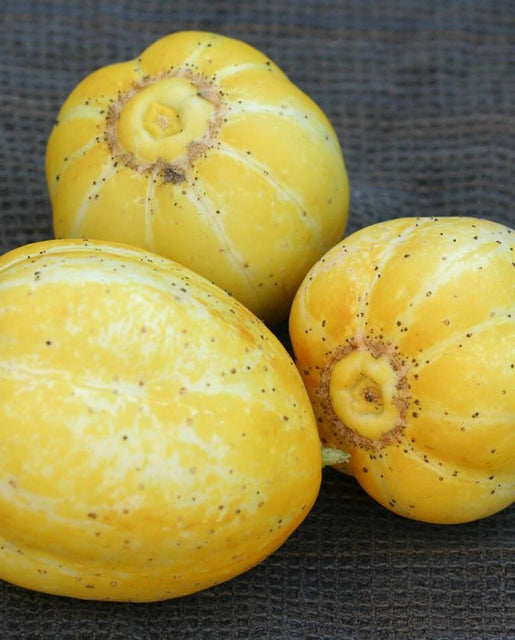Your cart is currently empty!

Crystal Lemon Cucumber Growing Tips

Lemon cucumbers offer a fun way to add a splash of color and a twist on your favorite vegetable. They are easy to grow and maintain, making them a great addition to any garden.
A popular cultivar, lemon cucumbers are usually ready to harvest 60 days after planting. However, they are not quite as ripe as regular cucumbers, so make sure to pick them when they’re just starting to turn yellow and are about the size of a lemon.
Sow Indoors
Cucumbers are one of summer’s joys – not only do they make a fantastic snack but home grown cucumbers have a flavour and texture that supermarket bought fruits just can’t match.
Crystal lemon cucumbers are also a great variety to sow indoors as they adapt well and grow to their full potential. They require warmth to germinate – at least 20degC – so place seed pots in a heated propagator or on a sunny windowsill for best results.
To sow indoors, sow the seeds vertically or on their sides into small pots of peat-free compost – about 1cm-2cm deep. Water regularly, and the seedlings should germinate in about 7 days.
When the seedlings are strong enough to move outdoors, plant them in rows or hills allowing 60cm between each one. Mix in plenty of well rotted compost and manure to the soil.
Once the plants are established, they will thrive in warm weather and fruit through June and into September. To prevent cucumber wilt, a pathogen that causes sluggish growth and bitter-tasting fruit, rotate your cucumber crop every year to a new location.
Sow Directly Outside
One way to get a jump on your cucumber growing season is to direct sow seed directly into prepared garden beds. However, this method is only a good option for northern gardeners who want to avoid the risk of late frosts that can kill tender plants.
To sow seeds directly outside, you will need a warm, sunny location that can keep the soil moist but not soaked. You can use a variety of containers for this, including milk jugs or seed trays.
You should also mix in a generous amount of compost or manure to boost the nutrients that your garden soil needs. This will help prevent disease and promote healthy growth.
When direct sowing cucumbers, be sure to plant your seeds when the soil has warmed up to at least 60 degrees Fahrenheit. This occurs in mid-April to late-May, depending on your growing zone.
Mulching
Mulching helps conserve moisture, prevents weeds from growing and improves soil. Often made from organic materials such as grass clippings, wood chips, straw or manure, mulch is spread on top of the ground and breaks down over time.
Keep the soil rich, well-drained and slightly acidic by adding compost and well-rotted animal manure to your garden. Avoid using petrochemicals and plastics that will kill the beneficial biology in your soil and suppress the natural nutrient cycling that plants depend on for growth.
When the weather warms up, plant lemon cucumber seeds outdoors in late spring or early summer after soil temperatures reach 65 degrees Fahrenheit (21°C). Space them 18 to 24 inches apart in rows or hills.
Apply a layer of organic mulch like straw or shredded leaves to conserve moisture, keep roots cool and protect lemon cucumbers from pests such as slugs. Use no more than 3 inches of mulch to prevent slug damage; too much may exacerbate an existing slug problem.
Pest Control
Cucumbers can suffer from a wide range of pests, such as aphids and spider mites. However, there are a few things you can do to prevent and control these pests.
First, cucumbers are very shallow-rooted plants and require a good watering schedule. A thorough watering once or twice a week will keep soil moist without drying out.
Also, cucumbers should not be planted in the shade because they tend to develop diseases such as powdery mildew, which can cause leaves to yellow and turn brown.
Once your cucumbers are well-established, use organic fungicides to treat any signs of mildew. These products contain a bacteria that attacks mildew, so be sure to follow the directions on the label.
To help with insect pests, try growing marigolds near your lemon cucumber plant. This beautiful flower helps to repel aphids and other insects that may be attacking your cucumbers.
by
Tags: